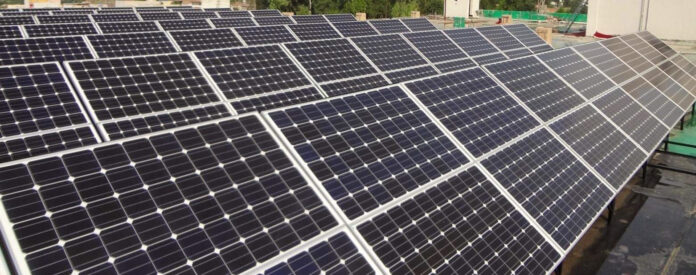The Government of Pakistan has suffered a defeat in its quest to secure a bid for the 600 megawatt solar power plant at Kot Addu-Muzaffargarh. This marks the fifth consecutive instance of such a rebuff, with the initial request for proposal (RFP) having been floated in February 2023.
This ambitious project was supposed to be the first of its kind in the country, a landmark achievement in the acquisition of renewable energy through international competitive bidding (ICB). The project was aligned with the long-term Indicative Generation Capacity Expansion Plan (IGCEP) — roadmap for the future of energy in Pakistan. The government had tried everything in its power to attract potential bidders, from multiple rounds of bidding to revisions in incentives, all under the already approved Framework Guidelines for Fast-Track Solar PV Initiatives 2022.
The initial deadline for the bids was set for April 2023, which was subsequently extended to May. Following the initial disappointment, the RFP was once again floated in September, with the project being showcased in Dubai as part of an international roadshow in October — the 30th of October was also the cut-off date for the bids. Yet, the outcome was the same — no bids. Undeterred, the Private Power and Infrastructure Board (PPIB), the entity tasked with overseeing the bidding for the project, extended the deadline for bids to December 11. The PPIB then further stretched the deadline to January 11; however, this date too has passed without the Government securing a single bid for the project.
This publication has previously delved into the reasons behind why the Kot Addu-Muzaffargarh has been unable to secure a suitor.
Read more: Why can’t the government sell one of its most sellable assets?
The fact that the Kot Addu-Muzaffargarh solar power plant has remained unclaimed for nearly a year by any bidder is nothing short of astounding. Ever since the early 1990s, one of the most sought-after business ventures in Pakistan has been owning and operating a power plant. Rising to the rank of an Independent Power Producer (IPP) has been a coveted aspiration for many corporations.
Herein lies an opportunity to not only become part of one of the largest sectors in the country but also to have the government as a sole, guaranteed customer that will incessantly demand more power from you. It would be reasonable to anticipate that corporations and investors would be jostling to bid for the solar power plant being envisaged at Kot Addu-Muzaffargarh.
The crux of the matter is not that the project is unappealing — it’s simply that the rate fixed by the Government of Pakistan is not enticing enough. This reluctance is further exacerbated by what existing energy players perceive as unjust treatment meted out over the years by the Government of Pakistan.
“One of the significant hurdles that the project developers encountered was that the benchmark tariff was unrealistic. At 3.4 cents, it was untenable,” explained Haneea Isaad, Energy Finance Specialist at the Institute for Energy Economics and Financial Analysis (IEEFA), when we reached out to her for the aforementioned article.
The Request for Proposal (RFP) set a benchmark tariff that was too low for investors. A benchmark tariff — the price per kilowatt-hour (kWh) generated that the PPIB would have awarded any bidder for the duration of the Power Purchase Agreement (PPA) — signifies the return any investor would have reaped from the project. This benchmark tariff was also unveiled at a reverse auction, and thus was the maximum that could have been granted.
We engaged in conversation with one potential investor who was contemplating making a bid for the project before the December 11 deadline, under the assumption that bids above the reference for proposal would now be acceptable. They have evidently refrained from submitting any bid at all.
Is the benchmark tariff the sole culprit? Not entirely. There is also the general risk premium associated with Pakistan. “We are a very precarious market compared to everyone else in our vicinity. From an investor’s perspective, looking at other comparable investment destinations such as India, Bangladesh or even Nepal and Sri Lanka, there is an added risk premium because of the state of our power market in terms of the circular debt and policy inconsistency,” explained Dr Ayesha Ali, Assistant Professor of Economics at LUMS, when we reached out to her for the aforementioned article.
“It is a very challenging environment for investors, both internally and externally. Externally, there is a lot of political risk, whilst internally, IPPs have struggled to receive payments from the authorities,” Isaad also added.
The IPPs and their disputes with the authorities regarding payments, is a recurrent phenomenon with IPPs frequently entangled in tribunals, arbitration, and litigation against the authorities because they feel aggrieved. The Patrind Hydropower and Engro’s Powergen are just two notable instances. In terms of the delayed payments to the players in the energy sector, we’ve already delved into the state of circular debt in 2023 previously.
Read more: Circular debt is at Rs 2.31 trillion. What does it mean?
5.5 cents per kWh is presumed to be an RFP value for which bids would have been received; however, the PPIB and the Government find themselves in a quandary. They cannot really accept bids too high above their own benchmark tariff, even if they were inclined to do so, because it would undermine the objective of the project: supplanting expensive fossil fuel energy with more economical renewable energy. Likewise, the authorities are, well, the authorities, and they do have valid grounds at times for why they believe the IPPs might be inflating their costs.
Is there a solution to the whole matter other than increasing the RFP? Yes. We have explored the solution in our initial coverage of the power plant for those interested.





why ipp? why not bot contract!